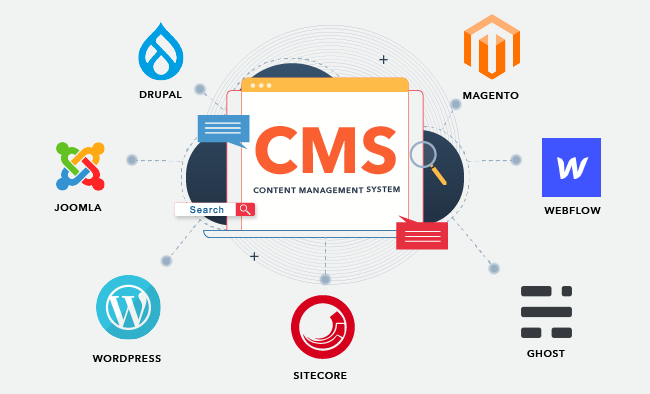Content management systems, or CMS for short, are essential tools for many businesses and individuals looking to create and maintain their online presence. CMS refers to a software application that allows users to create, manage, and publish digital content, usually in the form of a website. But what does CMS stand for, and what are its full forms? Let’s explore!
What does CMS stand for?
The acronym CMS stands for “Content Management System.” It is a software application that allows users to create, manage, and publish digital content, usually in the form of a website or blog. CMS provides users with a user-friendly interface that simplifies the creation and management of digital content, making it easier for them to maintain an online presence without needing to know how to code or program.
Full forms of CMS
There are several full forms of CMS, depending on the context in which it is being used. Here are some of the most common full forms of CMS:
- Content Management System
- Course Management System
- Church Management System
- Central Monitoring System
- Customer Management System
Let’s take a closer look at each of these full forms of CMS.
Content Management System
As mentioned earlier, the most common full form of CMS is “Content Management System.” A content management system allows users to create, manage, and publish digital content, such as text, images, and videos, on their website. Some popular CMS platforms include WordPress, Joomla, and Drupal.
Course Management System
In the context of education, CMS can also stand for “Course Management System.” It is a software application that allows educators to create and manage online courses, assignments, and assessments. CMS platforms like Blackboard and Canvas are widely used by universities and schools worldwide.
Church Management System
CMS can also refer to “Church Management System,” which is a software application that helps religious organizations manage their activities and resources. This includes managing membership, tracking donations, scheduling events, and managing finances.
Central Monitoring System
Another full form of CMS is “Central Monitoring System.” This refers to a system used by law enforcement agencies to monitor and track communication networks. CMS is used to monitor various communication channels, including emails, SMS, and voice calls, to detect any potential security threats.
Customer Management System
In the context of business, CMS can also stand for “Customer Management System.” This refers to a software application that helps businesses manage customer data and interactions. A CMS platform like Salesforce allows businesses to manage customer information, sales processes, and marketing campaigns.
Final thoughts
CMS, or Content Management System, is a powerful tool that allows users to create, manage, and publish digital content online. While there are several full forms of CMS, the most common is Content Management System. Other full forms of CMS include Course Management System, Church Management System, Central Monitoring System, and Customer Management System. Regardless of the full form, CMS platforms provide users with a user-friendly interface that simplifies the creation and management of digital content.

